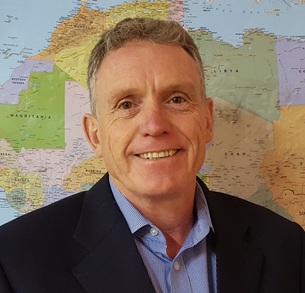 Kevan Hawley recently addressed reward professionals at the annual SARA conference, emphasising that businesses must understand international talent requires dedicated support and trained professionals Kevan Hawley recently addressed reward professionals at the annual SARA conference, emphasising that businesses must understand international talent requires dedicated support and trained professionals “Global expansion to counter the economic downturn sounds easy, until selecting employees to send to foreign countries,” said Kevan Hawley, Managing Director of Expatriate Preparation. “Businesses must understand that international talent requires dedicated support and trained professionals.” Hawley addressed reward professionals at the recent annual conference of the South African Reward Association (SARA). “Growing a valuable global workforce is not just about having the PA organise a passport, a plane ticket and a place to stay. It is about ensuring that the right person is allocated the right position and that the workforce mobility strategy is integrated from the top down.” A valuable global workforce is one that has been developed and nurtured by a trained reward professional who understands mobility, how to keep costs in check and what kind of work suits specific individuals. “Leadership has to develop a global mind-set before establishing a global workforce,” he says. “Employees assigned to international posts need to feel as if these enhance their careers and they have the local support required for integration and growth.” Traditionally, the organisation has had one Human Resources (HR) practitioner to around 20 international employees. South African companies often have only one mobility officer for every 60 international employees. Shifting these figures to ensure the workforce is better managed, and the “us-and-them” mentality excluded, should be imperative. “70% of all international assignees leave their company within a year after their return as their international experience is not used or appreciated when they come back,” says Hawley. “Trained mobility professionals will recognise this concern and will add value in terms of role allocation, role development and skills enhancement.” It is also essential that any globalisation strategy be led from the top of the organisation. The mobility officer has to be given a clear mandate and support to ensure that there is no negativity, seamless integration on both international and local fronts and guidelines on personal and career growth for the globalised individuals. “There are five types of international employee and it is the role of a well-trained mobility officer to avoid the bad and recognise the good,” concludes Hawley. “They should select the person for the way they fit internationally and their internal value systems.” The five types of international assignee are: • The Assimilator – loves the host country, speaks the language fluently, but it not that mobile as they no longer wish to move; • The Integrator – can change and adapt and is easy to bring home or move to another country; • The Separator – is told to go, no career aspirations, does not like host country and does not want to learn the local language; • The Segregated – tries to integrate, but cannot due to host pressure; and • Colonialist – assimilates expat life, loves their status, doesn’t learn about host country and are the most disliked in Africa. ENDS MEDIA CONTACT: Cathlen Fourie, 012 644 2833, [email protected], www.atthatpoint.co.za For more information on SARA please visit: Website: www.sara.co.za Twitter: @SA_reward LinkedIn: South African Reward Association Facebook: SARA – South African Reward Association
0 Comments
Leave a Reply. |
Archives
March 2023
Welcome to the South African Reward Association newsroom.
Categories
All
|

 RSS Feed
RSS Feed